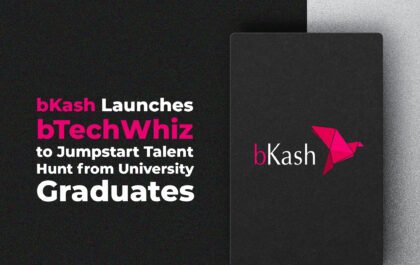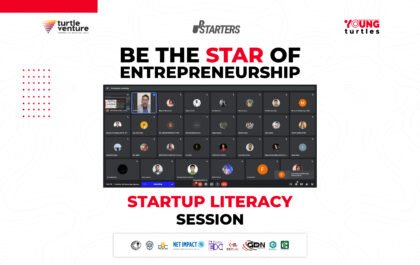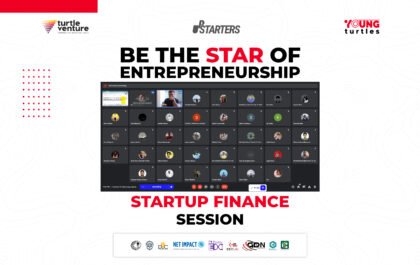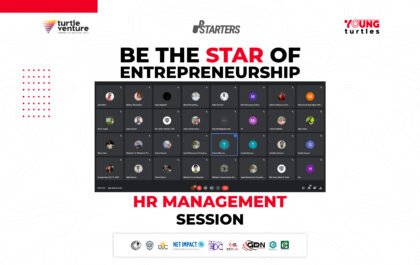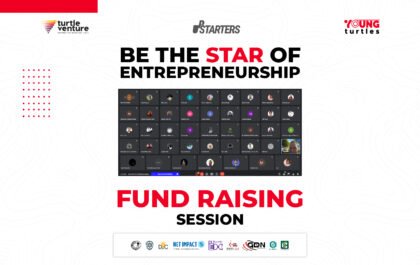Edtech can be defined as a combination of IT technologies and educational activities aimed at promoting and improving learning,basicallyit is a portmanteau of the term “education technology.”
One of the most promising areas in the software sector is Ed Tech. Individuals who are new to the industry or making a career transition between roles in Ed Tech need a panoramic view of the industry but don’t know where to begin, resulting in several hours of research.This article provides a quick onboarding understanding or EdTech and some lessons for EdTech Startups.
What is EdTech?
Edtech is the great way to bring IT technologies into the classroom to make teaching more effective, interactive, and personalized.
Ed Tech evolved from a variety of fields, with educators, technologists, and business leaders largely influencing its early development. Ed Tech is a relatively young industry, dating back to the late 1980s and early 1990s, when educational games, apps, and CD-ROMs became commonly accessible. It has been marked by competitive instability and rapid growth as a relatively new and fast-growing field. Numerous waves of items, innovations, and paradigms have emerged, each promising to be the “next big hit” to change the sector, but public adoption has eluded them.
Today’s classrooms are tech-infused, with tablets and interactive online courses replacing the clunky desktop computers that were once the standard. IoT devices are being praised for their ability to build digital classrooms for students, whether they’re physically in school, on the bus, or at home; even machine learning and blockchain technologies are assisting teachers with grading exams and keeping students responsible for homework.
The ability to scaleable, individualized learning has been a key factor in edtech’s rise. It’s not a one-size-fits-all situation when it comes to how we learn, communicate with classmates and instructors, and our overall passion for the same subjects. Everyone learns at his or her own pace and in their own way. Edtech resources make it easier for teachers to develop individualized lesson plans and learning experiences that promote diversity and inclusion and improve the learning abilities of all students, regardless of age or learning capacity.
Areas of the Ed Tech Field
- Online Courses: online educational courses based on free,paid,credit, K-12, higher education, and others.
- Learning Management Systems: LMS provides coordinating the communications with system, scheduling, content access, assignment submissions, grading, and progress/completion tracking of professors with students.
- Corporate training: learning products/services in a B2B environment, driven by institutions’ goals and strategies.
- Online Program Management: Systems which support universities in online learning.
- STEM/Coding and Technology: Applications for all ages that teach science and math skills, with a strong subset of coding and technology skills.
- Language Learning: Apps and tools for learning any kind of language.
- Gaming: Games with educational focus mainly based on coursework.
Major players, in the field of EdTech :
The market share for Ed Tech could be grouped into three types:
- Ed Tech is a part of the market for several technology companies: Google , Microsoft, Apple. Besides Cisco Systems, Dell (EMC), and Samsung are other tech companies with a significant presence in Ed Tech.
- Large education companies.
- Start-ups
There are Four Types of Business Models in the EdTech Field :
Almost all businesses can be grouped into one of four buckets when looking at the whole field :
- Simplicity Play (Fremium Adoption)-
- Remind
- Enterprise Play (B2B Sale)-
- LMSs
- Niche Teaching Applications (Authority Sell)-
- Blue Ocean Play-
- 2U, Audacity, Udemy etc.
How Does Edtech Help Students & Teachers?
Technology is allowing students of all ages to explore new learning opportunities while also encouraging teamwork and inclusivity in the classroom. These are :
- Increased Collaboration
- 24/7 Access to Learning
- Personalized Educational Experiences
- Automated Grading
- Classroom Management Tools
- Paperless Classrooms
Some Important EdTech Business Lessons to keep in mind before launching your startup:
Educational technology isn’t new – it’s been around for a long time :
Although new technologies these days doesn’t mean that education technology hardware and software didn’t exist before 2010. Do your own homework if you really want to better your education. Prepare to be thrown to the curb if your edtech concept is genuinely transformational, even if there is a dire need for it, even if it performs as advertised, even if it is free.
“When you’re going in to change the system, there’s always hostility particularly in Ed-Tech”
– Hoehn-Saric
Entrepreneurs want to get to “execution” as quickly as possible:
It’s much easier to create new technologies than it is to interact deeply with students and teachers to consider their basic needs. Better still, aim to change the system by bringing the interests of administrators, staff, and students closer together.
Many Ed-Tech companies take a decade to develop, even though their revenue is just a few million dollars – which isn’t everyone’s cup of tea.
Schools purchase ed-tech tools but then failing to Use Them :
This is a major issue which has been revealed after many analysis that many schools and other institutes buy Ed-Tech tools, but they end up failing to use those technology or services.
Teachers are influenced to be FREE Consumers:
Majority of us are not willing to pay for using social media, such as Twitter, Facebook.That is the same psychology teachers’ have been primed to think (unfortunately) by the flood of desperate edtech companies.Several major companies, including Google, GitHub, and Microsoft, also provide free or heavily discounted products to educators.
They claim that since they work in education field, they are eligible for a free lunch.
Customers who are early adopters of Edtech have flaws:
In the Higher Education of Classroom Technology Category ,Ed-Tech early adopters should be carefully selected, unlike in other industries. Many of them have competing agendas, particularly those dealing with educational study. They see the tools as a cherry on top of their thesis or case study, and they make a lot of noise for the co-founders. Others are just not well-educated enough to be aware of all available options, so they buy yours. The remaining say yes because it is the simplest choice rather than going out and looking for a better answer.
Since its inception, the field of education technology has been rapidly expanding. While the industry continues to expand at a rapid pace, the essence of that growth has recently changed. The rise in the number of start-ups appears to be gradually declining as restructuring of smaller companies becomes a normal part of an industry’s development process.Ed-Tech professionals are shifting to new positions within organizations or looking for new opportunities in other Ed-Tech companies as a result of these changes. Ed-Tech professionals must now, more than ever, remain updated and knowledgeable about the industry while still paying careful attention to their personal narrative.
Equity equity is a large component of compensation for key early hires in Ed-Tech startups, as it is in every fast-growing industry.Understanding how startup equity works can help you not only analyze job opportunities rationally, but also stand out as an applicant who asks insightful questions about financial issues outside of their job description.
Related posts
Subscribe for newsletter
* You will receive the latest news and updates on your favorite celebrities!
Young Turtles 2022 Workshop by Turtle Venture
Turtle Venture is here with a brand new workshop for you to join! The registration for Young Turtles 2022 is…
SHE LOVES TECH Bangladesh 2020
I f you’re a woman entrepreneur, then “She Loves Tech” would be a popular name for you, right? They will…
SELISE Coding Challenge 2020
A re you a coder? Are you bored in this quarantine while looking for opportunities to enrich or test your…
GP Accelerator Startup Talk Episode-1
D ue to COVID-19, it was like life almost had stopped in the earlier days. Though it’s not like that…
bKash Launches bTechWhiz to JumpStart Talent Hunt from University Graduates
The leading mobile financial services (MFS) provider in the nation, bKash, has started a program called “bTechWhiz” to find and…
“Be The Star of Entrepreneurship” Mentorship Sessions: Startup Literacy
The sixth mentorship session of “Be The Star of Entrepreneurship” 2022 was conducted on the 19th of April on Startup…
“Be The Star of Entrepreneurship” Mentorship Sessions: Startup Finance
The fifth mentorship session of “Be The Star of Entrepreneurship” 2022 was conducted on the 18th of April on Startup…
“Be The Star of Entrepreneurship” Mentorship Sessions: Product Design
The fourth mentorship session of “Be The Star of Entrepreneurship” 2022 was conducted on the 16th of April on Product…
“US Patent and Trademark Office Meets MSMEs and Startups” Session Held
A session was held recently on 10th May 2022; organized by iSocial Limited and facilitated by Turtle Venture- regarding…
“Be The Star of Entrepreneurship” Mentorship Sessions: HR Management
The latest mentorship session of “Be The Star of Entrepreneurship” 2022 was conducted on the 24th of April on HR…
“Be The Star of Entrepreneurship” Mentorship Sessions: Fund Raising
The latest mentorship session of “Be The Star of Entrepreneurship” 2022 was conducted on the 28th of April on Fund…
Bangladeshi Startups Getting $750 Million in Foreign Investment
In the last decade, the country has attracted over $750 million in foreign investment in the startup industry, according to…





